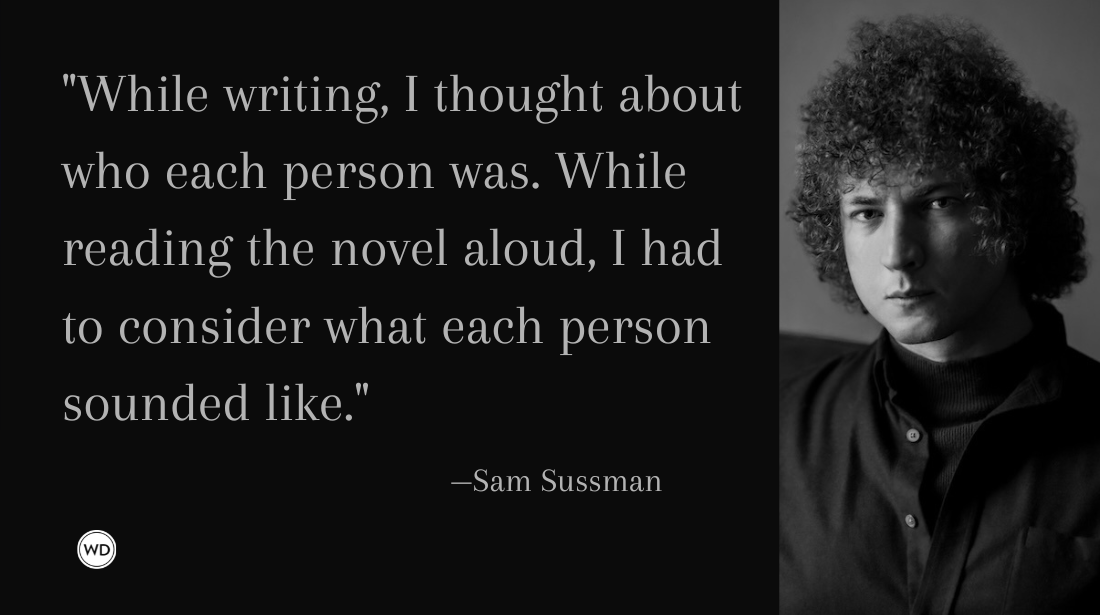This summer, I spent six sweltering days in the legendary offices of John Marshall Media in Hell’s Kitchen recording the audiobook for my debut novel, Boy From the North Country. Most people I knew told me not to do it. In the JMM studio, I learned all the reasons authors are encouraged not to narrate our own books. I also walked out of the studio feeling that I understood my novel more intimately than I ever could have imagined––and with an even deeper appreciation for its primary subject, my mother.
The reasons an author should not narrate his or her own audiobook are evident. Writers are not actors. The writer may be too close to the story. And what could be more torturous than reading one’s own book aloud, sentence by sentence for six days, when it’s too late to alter a single word?
I had my reasons for wanting to narrate Boy From the North Country. The novel is drawn from the formative material of my life. Growing up with my mother in the Hudson Valley, and journeying into an appreciation of her complexity and gifts. The story of her romantic relationship with Bob Dylan, which I had written about in a Harper’s Magazine memoir essay called, “The Silent Type: On (Possibly) Being Bob Dylan’s Son.” Coming home in my mid-20s when my mother was sick, and spending her last weeks together, the most formative days of my life.
It’s the story of my life. I wanted the listener to hear it from me.
I listened to the warnings. I committed to not speaking outside the studio for six days. I knew that recording the audiobook would be emotionally and artistically demanding.
So too had writing the book.
The first day in the studio was humbling. In the recording booth, with the headphones clamped over my head, and the spectacular director Ruth Lichtman and sound engineer Nathan George Thomas on the other side of the glass, I faced my novel in a way I never had before. I had spent years asking myself if I was capturing the complexity of my mother in the character I was creating from her life. Now I had to conjure her voice for people who would never know her.
My mother spent her 20s as an actress in New York. When I was young, she spent hours reading to me aloud: King Arthur, Harry Potter, Robin Hood. I first fell in love with literature to the sound of my mother’s voice. Nearly a third of Boy From the North Country is told from her perspective, my recreation of her telling me about her youth in bohemian New York. I knew that I couldn’t make my male baritone voice sound like hers. But I could find her rhythm of speaking, the spirit of kindness that came through her words and made her who she was. I could find that patient reading voice that she had shared with me, my first memory of loving books.
So there I was, eight years after her death, reading aloud this story that I had written for her, as she had once read aloud to me. I had never felt closer to the novel, never felt more appreciative of those years my mother spent reading to me.
There were other voices, too. I had to find within me the Yiddish accent of the painter Norman Raeben. The Transatlantic clip of the mother of method acting, Stella Adler. The inimitable drawl of Bob Dylan, speaking to my mother about his personal and artistic crises as he wrote Blood on the Tracks.
I was daunted by the range of voices that had drifted through my life into the novel. There were lines in a Scottish tilt, the Queen’s English, a Balkan doctor. The Shema, spoken in Hebrew with a Brooklyn Jewish accent––try that three times fast.
Every character in the book, like every person in life, sounded differently. While writing, I thought about who each person was. While reading the novel aloud, I had to consider what each person sounded like. It was a startling reminder that a person can never simply be taken into a novel for its own purposes; each character must have her own identity, scent, and voice, no matter how briefly the particular story at hand permits us to hear it. One of the qualities I admired most in my mother was her vision into the distinctness of each person she met. When I wasn’t sure how to read a line, I’d ask myself: What would my mother notice about this person? What would she tell me about him if they met?
Growing up, we didn’t have television. My mother somehow prevented me from using the internet until I was nearly a teenager. On summer days, when school was out and she was working, I often sat in the living room with Jim Dale and the Harry Potter cassettes. My day became a high drama of love, war, and friendship. Dale knew how to find the distinct voice and humanity of each character, no matter how incidental to the book. When I wasn’t thinking of how my mother would read a line, I was thinking about how he would.
Walking out of the studio one night, exhausted, feeling a sore throat coming on, I glimpsed a plaque with Dale’s name. He had recorded the seventh Harry Potter audiobook in the same studio, a few doors down from me. There’s only one word for that: Magic.
Check out Sam Sussman’s Boy from the North Country here:
(WD uses affiliate links)

Leave a Reply